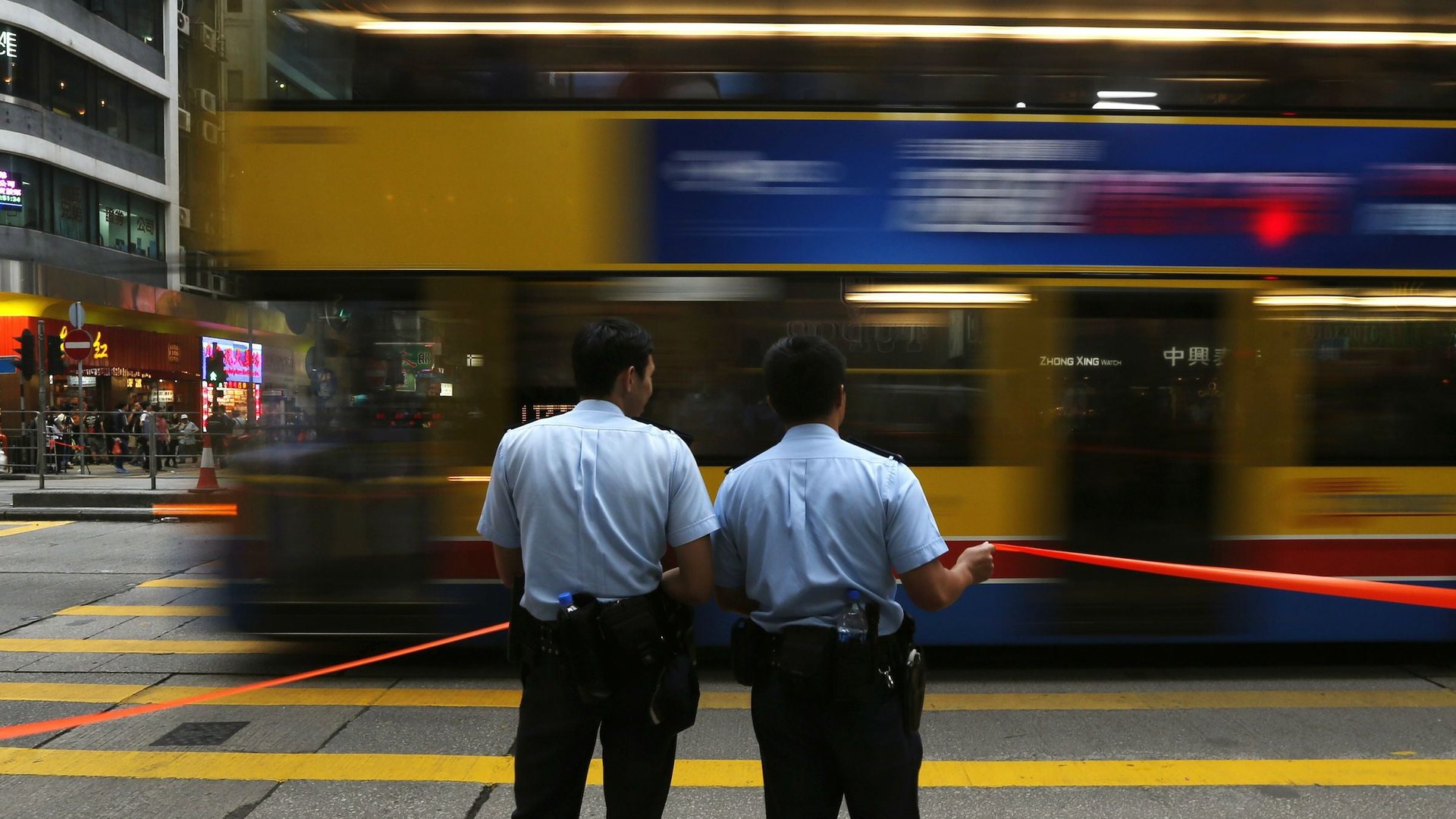Hong Kong’s democracy movement is being dismantled by a bus company
Hong Kong’s Umbrella Movement just hit a legal roadblock that may prove to be its undoing. After a night of violent clashes between protesters and police, Hong Kong’s High Court yesterday upheld an injunction on behalf of a bus company that wants protest barricades removed from sections of the road at the pro-democracy movement’s main site in Admiralty.


Hong Kong’s Umbrella Movement just hit a legal roadblock that may prove to be its undoing. After a night of violent clashes between protesters and police, Hong Kong’s High Court yesterday upheld an injunction on behalf of a bus company that wants protest barricades removed from sections of the road at the pro-democracy movement’s main site in Admiralty.
“The right to use public highway in a lawful and reasonable manner for legitimate purposes is a right commonly enjoyed by all members of the public. No one can possibly claim a monopoly of using the public highway in total disregard of the interests of his fellow citizens, no matter how honourable or noble his cause may be. That is so even if the right to demonstration or assembly as guaranteed by the Basic Law is engaged.”
The ruling comes at a difficult time for the ebbing protest movement. Police rebuffed efforts by protesters to retake other areas of central Hong Kong last night, leading to more dissension among the demonstrators. One student leader declared the escalation “a failure.”
Protesters have already ceded a large swathe of territory in the last week when police and bailiffs, upholding similar court injunctions, removed tents and barricades from Mong Kok, a normally busy shopping district in Kowloon that had been the movement’s most resilient protest site.
It may not be a surprise if the final nail in the coffin of the protest movement turns out to be a complaint from a bus operator. One of the main criticisms among Hong Kongers that have grown disenchanted with the movement is the inconvenience it is posing to daily life.
Some of those complaints are laid out in the injunction filed by the bus operator, All China Express: Average traveling time for the company’s southbound routes, which pass through the protest site in Admiralty, has increased by 10 to 20 minutes. After having to scrap a bus drop-off site and struggling to stay on schedule, its passengers and ticket sales have fallen by 17%, or the equivalent of HK$691,754 (almost $90,000), between when the protests began at the end of September and Oct. 29.
The court ruling allows for parts of Connaught Road and Harcourt Road, but not areas directly surrounding government headquarters, to be cleared. The exact locations are to be laid out in another hearing on Dec. 4. The court order also gives police permission to arrest anyone who obstructions the clearing, stating that these protesters would be “liable for criminal contempt.”
Protest organizers are still deliberating how to respond, and officials have not said when the clearing would began. But Hong Kong officials have seized advantage of the movement’s moment of weakness to take a hard line. “I advise everyone who’s still occupying or thinking to return to protest sites tonight, especially the young students, not to mistake the tolerance of our police force in the past as an inability to deal with the protests,” chief executive CY Leung told reporters today. “Don’t mistake [the] police’s restraint as weakness.”